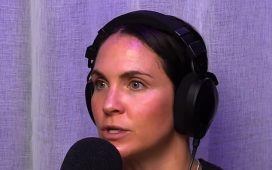BRITAIN’S coronavirus R rate is finally back below 1 – and was falling before lockdown, it’s been claimed.
The crucial value is now estimated to be at 0.9 across the country, according to new data from the Covid Symptom Study app.
⚠️ Read our coronavirus live blog for the latest news & updates
It comes as another major study suggests the R rate was already falling in the days before England was plunged into another national lockdown.
The REACT-1 study from Imperial College London suggests the value was 1.2 between October 25 and November 2 when a three-tier system was in place.
More recent figures, from King’s College London’s app, suggest that the R rate has since fallen and is now below one in all four nations.
Professor Tim Spector, whose team run the app, said the latest data also shows rates of new infections have dropped to below 36,000 a day.
He said: “Thanks to everyone’s efforts, the R value and the number of infections has come down now across the UK and across all four nations to below 1.
“Though, there are regional variations, that’s fantastic news.
“Numbers are still high – to around 35,000 cases a day, but nevertheless it’s all going in the right direction.”
Prof Spector added: “The biggest drops were seen in places like Scotland and the North West of England where rates are now back to where they were at the beginning of October.
“We still have a way to go, but encouraging also is that areas that were less affected in the south of the country – South East, South West and East of England who were in Tier 1 – are already seeing drops.
“London is looking like it’s going to start going down fast soon now as well.”
However, he warned that some areas are seeing cases going in the opposite direction and it’s not yet clear why.
“One area is the Midlands where rates are still rising and that is a slight worry,” he said.
“We also need to keep an eye on the elderly population – the over 60s are the ones who end up in hospital, but so far most of the regions are seeing those levels coming down as well.”
The app is one of several major studies tracking the Covid outbreak in the UK, along with the REACT study by Imperial College London, the ONS infection survey and the Sage R rate, both of which will publish its latest stats tomorrow.
The latest update from the app suggests it’s the lowest the R rate – the number of people an infected person will spread the disease to – has been since August.
Sage’s most recent estimate, published on Friday, is that the R rate is somewhere between 1.1 and 1.3.
The app – though unofficial – has often been ahead of Government data in estimating infection rates and predicting localised hotspots.
It relies on data from around a million weekly users self-reporting symptoms and swab test results.
Experts behind the study also raised concerns earlier in the pandemic that a loss of smell and taste may be a sign of Covid after a spike in users reporting the symptom.
The app is one of several major studies tracking Covid infections and its data is supplied to the Government.
It’s findings also track closely behindt he most recent figures from the Office for National Statistics (ONS), which runs a huge government surveillance scheme.
The ONS has also found the country’s outbreak has been slowing since the end of October.
Last week, the professor of genetic epidemiology raised hopes when he suggested the UK had already passed its second peak of coronavirus cases.
But he cautioned that this wouldn’t be reflected in the death figures until after lockdown due to the incubation period of the virus.
It can take up to two weeks for symptoms to show, so there is typically a two-week time delay on hospital admissions.
There tends to be another two-week lag on top of this when it comes to the number of people who have died from Covid.
This means it could be early December before there is any drop in the death statistics, according to Prof Spector.
It comes as the latest figures showed 50,365 people have died from Covid in the UK, making it the first country in Europe to exceed 50,000 deaths.
The British Medical Association (BMA) said the figures were a “terrible indictment” of the Government’s lack of preparation and organisation with regard to handling the virus.
Dr Chaand Nagpaul, BMA council chairman, said: “This is a point that should never have been reached.
“In March, Professor Steve Powis said that if the public adhered to the nationwide lockdown the total toll could be kept below 20,000.
“Today’s figure is a terrible indictment of poor preparation, poor organisation by the Government, insufficient infection control measures, coupled with late and often confusing messaging for the public.”
He added: “As we look towards the hope of a vaccine, it’s vital that lessons are learned from the last nine months to ensure that nothing on this scale ever happens again.”
Meanwhile scientists remain hopeful about the prospect of a vaccine, with England’s deputy chief medical officer Professor Jonathan Van-Tam stating the Government was preparing for the most important vaccination programme “in decades”.
Prime Minister Boris Johnson said everyone who is eligible should “definitely” get a vaccine as he dismissed the arguments of the so-called anti-vaxxers as “total nonsense”.

























